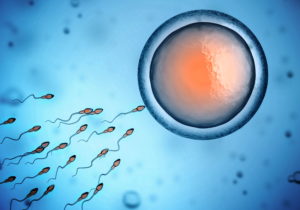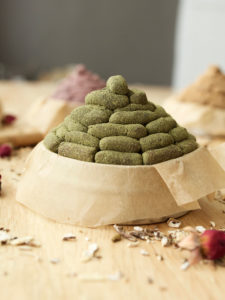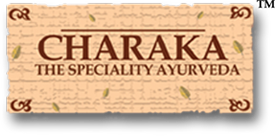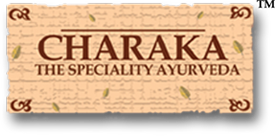
Oligospermia is defined as less number of sperm in the ejaculate of the male. Among infertile couples, 40% are primarily due to the infertility of the male partner, while in 20% of these cases it is a combination of both male and female factors associated which lead to infertility. Out of several causes of male infertility, in clinical practice Oligospermia is considered one of the most prevalent causes.
Sperm count in your ejaculate can vary throughout your life. A healthy sperm amount is often necessary for fertility. The World Health Organization (WHO) classifies sperm counts at or above 15 million sperm per milliliter (mL) of semen as average. Anything below that is considered low and is diagnosed as oligospermia.
- Mild oligospermia is 10 to 15 million sperm/mL.
- Moderate oligospermia is considered 5 to 10 million sperm/mL.
- Severe oligospermia is diagnosed when sperm counts fall between 0 and 5 million sperm/mL.
Since Oligospermia tends to have no effect on sexual function, men may not know they have this unless they are having trouble conceiving with a partner.
Oligospermia is one of the main causes of male infertility or sub-fertility. Sub-fertility is a reduced ability to achieve a pregnancy while infertility is defined as the complete inability to produce a pregnancy after about one year of unprotected sexual activity.
Although having oligospermia decreases the odds that a sperm will find and fertilize an egg, it does not completely rule out the possibility of conceiving naturally. The number of sperm in your semen is only one of many factors that determine whether you and your partner can conceive a child.
Many men with oligospermia are able to father a child.
Semen deficiencies are often labeled as follows:
- Oligospermia or Oligozoospermia – decreased number of spermatozoa in semen
- Aspermia – complete lack of semen
- Hypospermia – reduced seminal volume
- Azoospermia – absence of sperm cells in semen
- Teratospermia – increase in sperm with abnormal morphology
- Asthenozoospermia – reduced sperm motility
There are various combinations of these as well, e.g. Teratoasthenozoospermia, which is reduced sperm morphology and motility. Although low sperm counts are often associated with decreased sperm motility and increased abnormal morphology and thus represent “Oligoasthenoteratozoospermia”.
Oligospermia can be the result of many factors, some are permanent and some are reversible. Causes of Oligospermia include an obstruction of the normal flow of sperm due to such conditions as testicular trauma and vasectomy. Oligospermia may also result from scarring due to surgery on the male reproductive system or from infection and sexually transmitted diseases.
A decrease in sperm production is another cause of Oligospermia. This can be due to such conditions as varicoceles (Varicoceles are found in 15% to 20% of all men and in 25% to 40% of infertile men), hormonal disorders, diseases of the testicles, and obesity. Other causes of Oligospermia include stress, smoking, drug or alcohol use, some medications, exposure to some toxins or chemicals or radiation, congenital testicular abnormalities, age (fertilization rates decrease among men over 40 years of age), malnutrition, overheating (hot tubs, fever etc.), tight briefs, being underweight and general health and wellness issues. Even frequent biking can impact sperm production. Some sexually transmitted disease, such as Chlamydia, and Gonorrhea can also result in Oligospermia.
There are many possible causes of oligospermia, including the following:
- Varicocele – a swelling of the veins that drain the testicle
- Infection that interferes with sperm production or sperm health
- Ejaculation problems such as retrograde ejaculation (ejaculation backward into the bladder)
- Certain medications (alpha blockers, finasteride, antiandrogens)
- Genetic conditions (Y chromosome deletions, altered chromosomes)
- Hormonal imbalance (low testosterone, high prolactin levels)
- Undescended testicles
- Medical issues such as multiple sclerosis, diabetes or thyroid disorders
- Heat exposure (hot tubs, baths, saunas)
- Recreational drugs (Alcohol, cocaine, marijuana)
- Anabolic steroid use
- Chronic stress
Ayurveda management of Oligospermia

As per Ayurveda, Oligospermia can be correlated with ‘Shukra kshaya”. Even though none of the standard Ayurvedic texts have mentioned about the count of Sperm or Motility of sperm but clearly mentions the quality of semen in the form of ‘Shuddha shukra Lakshana’.
In Ayurveda, healthy semen which is more fertile is described as
“shukram shuklam guru snigdham madhuram bahalam bahu|
ghritamaakshikatailabham sadgarbhaya ||”
This means the semen which is white, heavy, sticky, sweet in taste, more in quantity and which may look like the color of ghee or honey or oil is always fertile.
At CHARAKA, we provide a very effective, holistic and wide range of treatment modalities for curing Oligospermia. Hundreds of formulations, herbs and recipes, variety of Panchakarma and rejuvenation therapies are advocated to achieve the above said qualities of semen.
Ayurveda has advocated a separate branch which deals with the management of defective semen and spermatogenesis along with sexual potencification, is called as Vajikarana tantra (Aphrodisiac medicine). Vajikarana Therapy is recommended in Ayurveda for men who are above 16 and below 70 to maintain optimum sexual activity and healthy semen.
The treatment of Oligospermia comprises of administration of rasayanas and vajikara dravyas or medicines (virilificatory or aphrodisiacs) internally, Panchakarma & Vajikarana therapies for detoxification and rejuvenation along with diet and lifestyle modifications, will not only help in better conception but also in producing healthy offspring.

